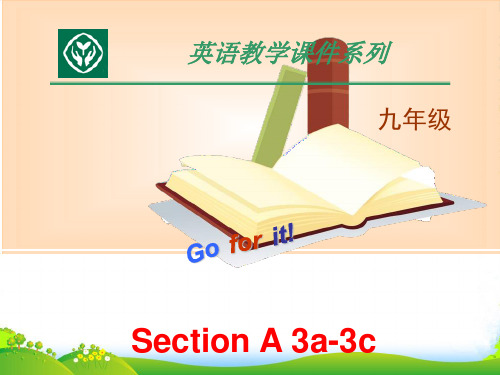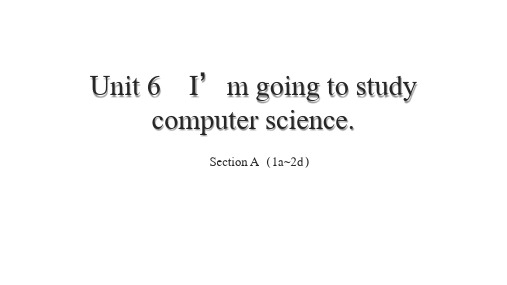❖ What are you going to buy? 你打算买什么?
Sentence pattern
1. 肯定式: 主语 + be going to + do(动词原形) + …
2. 否定式:在助动词be后加not,即: 主语 + be + not + going to + do +...
3. 疑问式:把助动词be移到句首,即: Be+主语+going to do+...?
➢ be going to + v.
What do you want to be when you grow up? I want to be an engineer.
How are you going to do that? I’m going to study math.
What do you want to be when you grow up? I want to be a cook.
这和be作连系动词时的用法相似。
将来时也可用 “be + doing ”来表达 ,表示动 作按计划和安排发生,语气较委婉,动词多是 一些移动词。如:go、come、 leave、 start、 move、 sail、 arrive、 reach、 return、 drive、 travel、 remain、 land等。
grow up?
B: I __w_a_n_t__ to be a doctor. A: Wow! __H__o_w___ are you going to do that? B: I’m __g_o_i_n_g__ to study medicine at a university. A: Hmm … sounds difficult. __W__h_e_r_e__ are you





